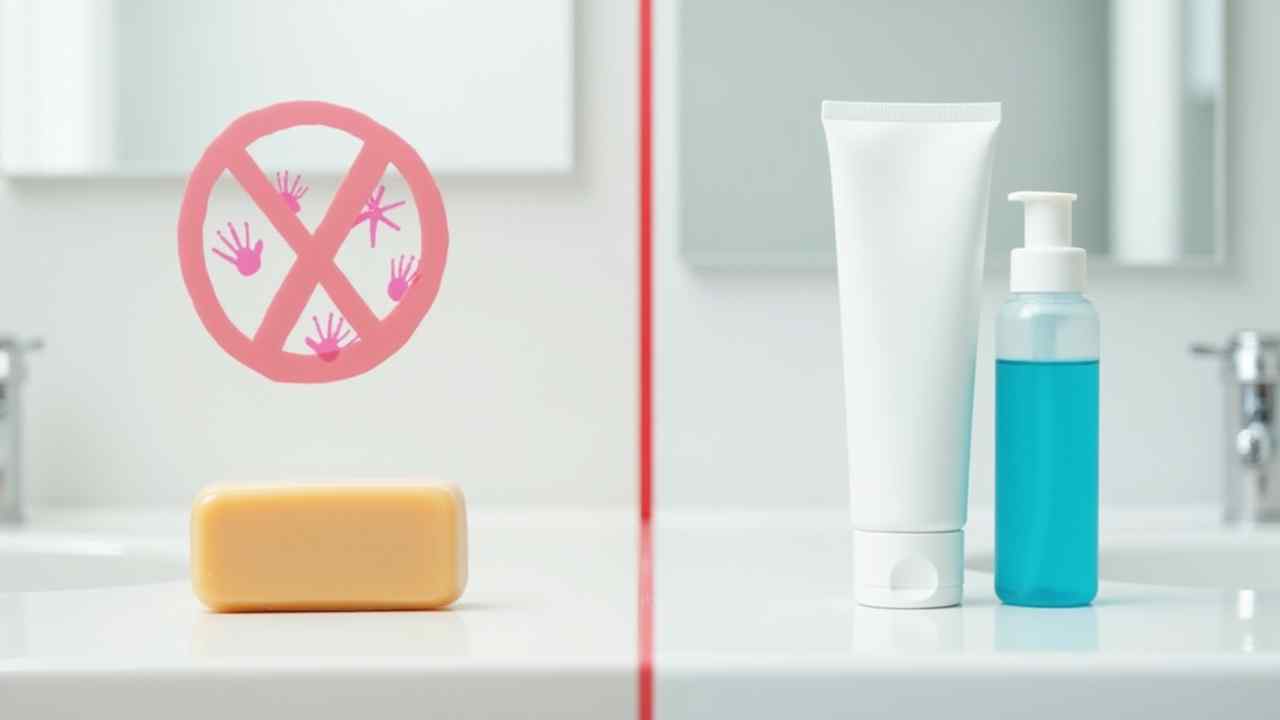
🧼 Should You Use Antibacterial Soaps for Acne? A Dermatologist's Guide
🧼 Should You Use Antibacterial Soaps for Acne? A Dermatologist's Take 🧼
When you are dealing with acne, your first instinct is to fight back. You know that bacteria play a role in pimples. So, reaching for strong antibacterial soaps for acne seems like a logical first step. It is a very common thought process.
However, the answer is more complex. While bacteria are part of the problem, traditional antibacterial soaps are not the best solution. In fact, they can sometimes make things worse. Modern acne treatments use more targeted ingredients.
This guide will explain the role of bacteria in acne. We will also show you which ingredients are proven to work. Let's find the best and safest way to achieve clearer skin. ✅
🤔 What is the Role of Bacteria in Acne?
To treat acne, it helps to know the enemy. A specific type of bacteria, called Cutibacterium acnes (or C. acnes), lives on everyone's skin. It is normally harmless. The problem starts when a pore gets clogged.
Your pores can get clogged with a mix of dead skin cells and excess oil (sebum). This creates an oxygen-free environment. It is the perfect home for C. acnes to multiply rapidly. This overgrowth triggers an inflammatory response from your immune system.
That inflammation is what you see as a red, swollen, and painful pimple. So, a key part of treating acne is controlling this bacteria. However, the method you use to do so is very important.
🚫 Why Are Traditional "Antibacterial Soaps" Not Recommended Anymore?
Years ago, many soaps were labeled "antibacterial." They often contained an ingredient called triclosan. These soaps were very harsh and stripping. They were designed to kill all bacteria on the skin's surface.
However, the FDA has since banned triclosan from over-the-counter consumer soaps. This was due to concerns about its long-term safety. There were also worries about it contributing to antibiotic resistance. These harsh soaps can also strip your skin's natural moisture barrier.
A damaged skin barrier can lead to more irritation and even more acne. So, instead of grabbing generic antibacterial soaps for acne, you should look for cleansers with specific, proven acne-fighting ingredients. 🔬
✅ What Are the Best Acne-Fighting Ingredients That Target Bacteria?
Modern skincare offers much better solutions. Dermatologists recommend cleansers with specific active ingredients. These are more effective and targeted than old-fashioned antibacterial soaps. Here are the top choices.
Why is Benzoyl Peroxide the Gold Standard?
Benzoyl Peroxide (BPO) is the most powerful over-the-counter ingredient for killing acne bacteria. It releases oxygen into the pore. The C. acnes bacteria cannot survive in an oxygen-rich environment. BPO is highly effective for inflammatory acne (red pimples and pustules).
It is available in different strengths, from 2.5% to 10%. It is always best to start with a lower strength. This will help you avoid excessive dryness and irritation. It is a true powerhouse against acne.
What is the role of Salicylic Acid?
Salicylic Acid (BHA) is another fantastic ingredient. Its primary job is to exfoliate and unclog pores. It is oil-soluble, so it can get deep inside the pore to dissolve oil and dead skin. While it has some mild antibacterial properties, its main benefit is removing the bacteria's home. It is best for blackheads and whiteheads.
🧴 What Are Some Important Tips When Using Acne Cleansers?
When using these powerful ingredients, a gentle approach is key. Over-using them can cause problems. Follow these simple tips for the best results.
- Don't Overdo It: Use your medicated cleanser only once or twice a day.
- Moisturize: Acne treatments are drying. You must follow up with a good, non-comedogenic moisturizer. This protects your skin barrier.
- Be Patient: It can take 4-6 weeks of consistent use to see a real improvement.
- Use Sunscreen: These ingredients can make your skin more sensitive to the sun. Daily SPF is essential. ☀️
Instead of looking for harsh antibacterial soaps for acne, choose a cleanser with a proven active ingredient. This targeted approach is much safer and more effective. For persistent acne, always see a dermatologist. 👩⚕️